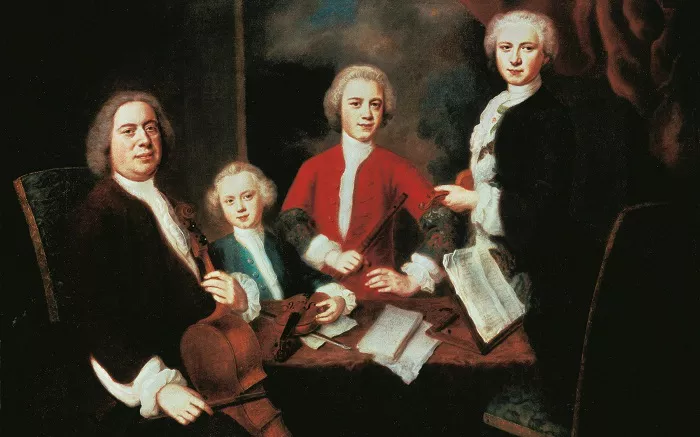Western classical music, with its roots deeply embedded in Europe, has grown to be a universal language. Its journey from the courts and churches of Europe to concert halls and conservatories worldwide is a tale of cultural exchange, colonialism, globalization, and artistic evolution. This article explores how Western classical music traveled around the world, influenced diverse cultures, and evolved into a global phenomenon.
I. Origins and Early Spread in Europe
The Birthplace of Classical Music
Western classical music originated in Europe, primarily in Italy, Germany, France, and Austria. Composers like Bach, Mozart, and Beethoven set the foundations during the Baroque, Classical, and Romantic periods. Their works were initially performed in royal courts, churches, and opera houses, reflecting the social and cultural contexts of their times.
European Expansion and Colonialism
The spread of Western classical music beyond Europe began with colonialism. European powers such as Britain, France, Spain, and Portugal established colonies around the world, bringing their cultural practices with them. Missionaries, settlers, and colonial administrators introduced European music to new lands, often through religious and educational institutions.
II. Classical Music in the Americas
North America
In North America, classical music found fertile ground in the United States and Canada. European immigrants brought their musical traditions with them, leading to the establishment of orchestras, opera houses, and music conservatories. The Boston Symphony Orchestra, founded in 1881, and the New York Philharmonic, established in 1842, are notable examples.
Influence of African American Culture
In the United States, the fusion of European classical music with African American musical traditions led to the creation of new genres such as jazz, blues, and gospel. Composers like George Gershwin and Duke Ellington incorporated these influences into their classical compositions, enriching the genre.
Latin America
In Latin America, classical music was introduced by Spanish and Portuguese colonizers. The establishment of cathedrals and churches facilitated the spread of European liturgical music. Over time, local composers began to blend indigenous musical elements with European forms, creating a unique Latin American classical tradition. Heitor Villa-Lobos from Brazil and Carlos Chávez from Mexico are prominent figures in this movement.
III. The Spread to Asia
Japan
Japan’s encounter with Western classical music began in the late 19th century during the Meiji Restoration, a period of rapid modernization. The Japanese government invited Western musicians and educators to teach and perform, leading to the establishment of music schools and orchestras. Today, Japan boasts a vibrant classical music scene, with world-renowned orchestras and musicians.
China
In China, Western classical music was introduced by missionaries and during the late Qing Dynasty. The Shanghai Conservatory of Music, established in 1927, became a significant center for Western classical music education. Despite periods of political upheaval, classical music has flourished in modern China, with numerous orchestras and music festivals.
India
Western classical music entered India through British colonial rule. Indian musicians began to study and perform Western classical music, leading to the creation of symphony orchestras and music schools. Today, cities like Mumbai and Chennai have active classical music scenes, and Indian musicians have gained recognition on international stages.
IV. Classical Music in Africa
Influence of Colonialism
In Africa, Western classical music was introduced primarily through colonialism and missionary work. European settlers and missionaries established schools and churches where Western music was taught and performed. South Africa, with its history of Dutch and British colonization, has a particularly strong tradition of Western classical music.
African Composers and Performers
African composers and musicians have made significant contributions to Western classical music. Fela Sowande from Nigeria and Kevin Volans from South Africa are notable examples. These composers have often incorporated traditional African musical elements into their works, creating a unique fusion of styles.
V. The Role of Technology and Globalization
Recording and Broadcasting
The invention of recording technology and the advent of radio and television played a crucial role in the global spread of Western classical music. Recordings of symphonies, operas, and solo performances became widely available, allowing people worldwide to access and appreciate this music.
Music Education
Music education has been instrumental in spreading Western classical music. Conservatories, universities, and private institutions around the world offer rigorous training in classical music, attracting students from diverse cultural backgrounds. Prestigious institutions such as the Juilliard School in New York and the Royal College of Music in London have produced generations of accomplished musicians.
VI. Contemporary Classical Music
Cross-Cultural Collaborations
In the contemporary era, cross-cultural collaborations have become increasingly common. Western classical musicians often collaborate with artists from different musical traditions, leading to innovative and diverse performances. Composers like Tan Dun from China and Osvaldo Golijov from Argentina have gained international acclaim for their works that blend Western and non-Western musical elements.
Global Audiences and Performers
Today, Western classical music has a global audience and performers. Concerts and music festivals attract audiences from all over the world, and musicians from diverse cultural backgrounds perform and compose classical music. This global exchange has enriched the genre, making it more inclusive and dynamic.
See Also: Exploring Semi-Classical Music: A Fusion of Tradition and Innovation
VII. Conclusion
The journey of Western classical music from its European roots to a global phenomenon is a testament to the power of cultural exchange and artistic evolution. Through colonialism, immigration, technological advancements, and globalization, classical music has transcended geographical and cultural boundaries. Today, it continues to inspire and connect people worldwide, reflecting a rich tapestry of global influences and contributions.

